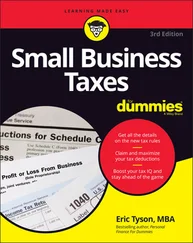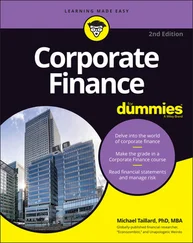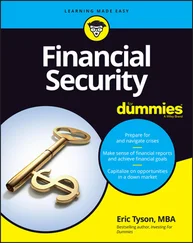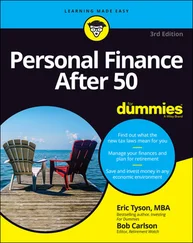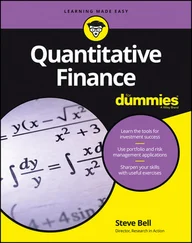 Whether you speak with a credit bureau or an actual lender, make notes of your conversations. If representatives say that they can fix the problem, retain their contact information, and follow up with them if they don’t deliver the promised results. If you’re ensnared in bureaucratic red tape, escalate the situation by speaking with a department manager. By law, bureaus are required to respond to a request to fix a credit error within 30 days. And if you file a dispute and the creditor doesn’t respond, the credit bureau must then remove the derogatory item.
Whether you speak with a credit bureau or an actual lender, make notes of your conversations. If representatives say that they can fix the problem, retain their contact information, and follow up with them if they don’t deliver the promised results. If you’re ensnared in bureaucratic red tape, escalate the situation by speaking with a department manager. By law, bureaus are required to respond to a request to fix a credit error within 30 days. And if you file a dispute and the creditor doesn’t respond, the credit bureau must then remove the derogatory item.
 You and a creditor may not see eye to eye on a problem, and the creditor may refuse to budge. If that’s the case, credit bureaus are required by law to allow you to add a 100-word explanation to your credit file. Just remember that if you go this route, be factual in your write-up and steer clear of broad attacks on the creditor (such as “their customer service sucks”). You’ll find sample 100-word statements online and a place to enter your statement on each bureau’s website. Or, you can mail your statement to the bureau.
You and a creditor may not see eye to eye on a problem, and the creditor may refuse to budge. If that’s the case, credit bureaus are required by law to allow you to add a 100-word explanation to your credit file. Just remember that if you go this route, be factual in your write-up and steer clear of broad attacks on the creditor (such as “their customer service sucks”). You’ll find sample 100-word statements online and a place to enter your statement on each bureau’s website. Or, you can mail your statement to the bureau.
 Avoid “credit-repair” firms that claim to be able to fix your credit report problems. In the worst cases I’ve seen, these firms charge outrageous amounts of money and don’t come close to fulfilling their marketing hype. If you have legitimate glitches on your credit report, credit-repair firms can’t make the glitches disappear. As I explain earlier in this section, you can easily fix errors on your own without the charge.
Avoid “credit-repair” firms that claim to be able to fix your credit report problems. In the worst cases I’ve seen, these firms charge outrageous amounts of money and don’t come close to fulfilling their marketing hype. If you have legitimate glitches on your credit report, credit-repair firms can’t make the glitches disappear. As I explain earlier in this section, you can easily fix errors on your own without the charge.
Getting your credit score
Many folks are disappointed to find that their credit reports lack their credit score. The reason for this is quite simple: The 2003 law mandating that the three credit agencies provide a free credit report annually to each U.S. citizen who requests a copy did not mandate that they provide the credit score. Thus, if you want to obtain your credit score, it’s generally going to cost you.
One circumstance allows you to get one of your credit scores for free, but unfortunately, you can only do so when you’re turned down for a loan. Current law allows you to obtain a free copy of the credit score a lender used in making a negative decision regarding your desired loan.
For recommended websites to use to obtain your credit score as well as those to avoid, please see Chapter 4.
Improving your credit reports and score
Take an interest in improving your credit standing and score rather than throwing money away to buy your credit score or paying for some ongoing monitoring service to which you may not pay attention. Working to boost your credit rating is especially worthwhile if you know that your credit report contains detrimental information or if your score is lower than 740.
 Here are the most important actions that you can take to boost your attractiveness to lenders:
Here are the most important actions that you can take to boost your attractiveness to lenders:
Check your credit reports for accuracy. Correct any errors, and be especially sure to get accounts removed if they aren’t yours and they show late payments or have gone to collection. Refer to the earlier section “ Obtaining your credit reports and fixing errors” for more information.
Pay all your bills on time. To ensure on-time payments, sign up for automatic bill payment, which most companies encourage customers to use. This enables companies to automatically deduct (typically monthly) what you owe from your checking account or to charge that amount to your credit card so you don’t have to remember to pay the bill. (This also prevents you from being charged interest or late fees when you make a payment after the due date.) On-time payments carry the most weight when calculating your credit score.
Be loyal if it doesn’t cost you. The older the age of loan accounts you have open, the better for your credit rating. Closing old accounts and opening a bunch of new ones generally lowers your credit score, so don’t jump at a new credit-card offer unless it’s really going to save you money. Examples would include if you’re carrying credit-card debt at a high interest rate and want to transfer that balance to a lower-rate card or a card that provides you with rewards/benefits greatly in excess of any costs. Ask your current credit-card provider to match a lower rate you find elsewhere.
Limit your total debt and number of debt accounts. The more loans, especially consumer loans (credit cards, auto loans, and so on), that you hold and the higher the balances, the lower your credit score will be. Work to pay down consumer revolving debt, such as on an auto loan and credit cards. See Chapter 5for more information.
Comprehending Your Investment Options
If you’re like most folks in their 20s or 30s, you may not have saved as much as you would have liked during your early working years. That’s fine for now, because together, we address that in this book. Regardless of how much (or how little) you have invested in banks, mutual funds, or other types of accounts, you want to invest your money in the wisest way possible and have it grow over time without exposing it to extraordinary risks.
In this section, I provide some background to help you understand how to best focus your efforts to become a more knowledgeable and successful investor. (In Part 3, I delve into all the important details of investing.)
Investment options: Making the best investments without understanding your range of options and the strengths and weaknesses of each is difficult. Do you understand the investments that you currently own, including their potential returns and risks? If you invest in or plan to invest in individual stocks, do you understand how to evaluate a stock, including reviewing the company’s balance sheet, income statement, competitive position, price-earnings ratio versus its peer group, and so on?Last but not least are issues that come up if you work with a financial advisor for investment advice. Do you understand what that person is recommending that you do, are you comfortable with those actions and that advisor, and is that person compensated in a way that minimizes potential conflicts of interest in the strategies and investments he or she recommends? See Chapter 18for advice on hiring professionals.
Tax considerations: For many working people, taxes are either the number-one or -two largest expense categories. For starters, do you know what marginal income tax bracket (combined federal and state) you’re in, and do you factor that in when selecting investments? For money outside of retirement accounts, do you understand how these investments produce income and gains and whether these types of investments make the most sense given your tax situation?
Short-term money: Short-term money includes money you’d use in an emergency or for a major purchase within the next few years. Do you have enough money set aside for short-term emergencies, and is that money in an investment where it doesn’t fluctuate in value? Is the money that you’re going to need for a major expenditure in the next few years invested in a conservative, low-volatility investment?
Читать дальше

 Whether you speak with a credit bureau or an actual lender, make notes of your conversations. If representatives say that they can fix the problem, retain their contact information, and follow up with them if they don’t deliver the promised results. If you’re ensnared in bureaucratic red tape, escalate the situation by speaking with a department manager. By law, bureaus are required to respond to a request to fix a credit error within 30 days. And if you file a dispute and the creditor doesn’t respond, the credit bureau must then remove the derogatory item.
Whether you speak with a credit bureau or an actual lender, make notes of your conversations. If representatives say that they can fix the problem, retain their contact information, and follow up with them if they don’t deliver the promised results. If you’re ensnared in bureaucratic red tape, escalate the situation by speaking with a department manager. By law, bureaus are required to respond to a request to fix a credit error within 30 days. And if you file a dispute and the creditor doesn’t respond, the credit bureau must then remove the derogatory item. Avoid “credit-repair” firms that claim to be able to fix your credit report problems. In the worst cases I’ve seen, these firms charge outrageous amounts of money and don’t come close to fulfilling their marketing hype. If you have legitimate glitches on your credit report, credit-repair firms can’t make the glitches disappear. As I explain earlier in this section, you can easily fix errors on your own without the charge.
Avoid “credit-repair” firms that claim to be able to fix your credit report problems. In the worst cases I’ve seen, these firms charge outrageous amounts of money and don’t come close to fulfilling their marketing hype. If you have legitimate glitches on your credit report, credit-repair firms can’t make the glitches disappear. As I explain earlier in this section, you can easily fix errors on your own without the charge.

